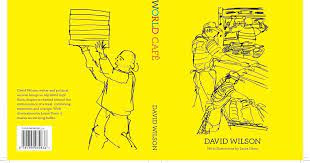My World Cafe by David Wilson review: a political recipe book with a difference
Did you know apple strudel is Iraqi?
Socialist Worker
Monday 30 October 2023
Heritage tomatoes were first thought to have been cultivated by the Aztecs in the Andes mountains. The name comes from the Aztec word “tomatl”, and it took years of breeding to give us the red tomato.
What’s more, the West acquiring the tomato was not innocent, as author David Wilson points out in his recipe for Tomato curry with chana. “The Spaniards came with a sword in one hand and a plate in the other,” he writes.
“Along with gold and silver, Europe got potatoes, tobacco, peppers and tomatoes. Indigenous Americans got colonisation, disease, slavery and war.”
Furthermore, the tomato took its place in medieval times amongst the poor who ate off wooden boards. Tomatoes were shunned by the rich, who were apt to be poisoned when the acid from the food leached out the lead from their pewter plates.
This recipe book is about memories of people and places, tastes and smells, where foods where come from and how they are adopted and transformed across the world.
Take quiche Lorraine. The word quiche is a corruption of the German word “kuchen” and the food originated from the Kingdom of Lothringen, renamed Lorraine when taken over by the French. Wilson’s point is about poverty, hunger and inequality. Quiche Lorraine is cheap and nutritious. A recipe for it was broadcast as part of the 1926 radio show Aunt Sally’s Radio Recipe in the US to help counter poverty.
Apple strudel—in German, “apfelstrudel”—is associated with the Germanic world. But it was an Assyrian dessert in 8th century BCE, now modern-day Iraq. “Many centuries later, in 1683, Ottoman armies besieged Vienna, but failed to conquer the city,” Wilson writes.
“Their pastry made it over the wall and laid the foundation for apfelstrudel. Cinnamon is dried bark from the cinammon zylanicum tree originally from Sri Lanka.”
Bread is important the world over. Wilson, among many other things, was co-founder of the charity War Child that set up a war-time mobile bakery to feed starving people in Mostar during the Yugoslav wars in the 1990s.
Pizza is, of course, based on flatbread, a common form of unleavened bread found all over the world since antiquity. “In the 6th century BC, Persian soldiers cooked flatbreads on their shields and topped them with dates and cheese,” writes Wilson.
“In Ancient Greece, they made a flatbread called plakous, flavoured with onions, cheese and garlic. The Romans ate ‘panis focacius’.” Most of us know about naans, roti and parathas, these days. The Chinese have bing and the Italians have pizza.
There are far too many experiences and recipes to mention them all—so get the book.

No comments:
New comments are not allowed.